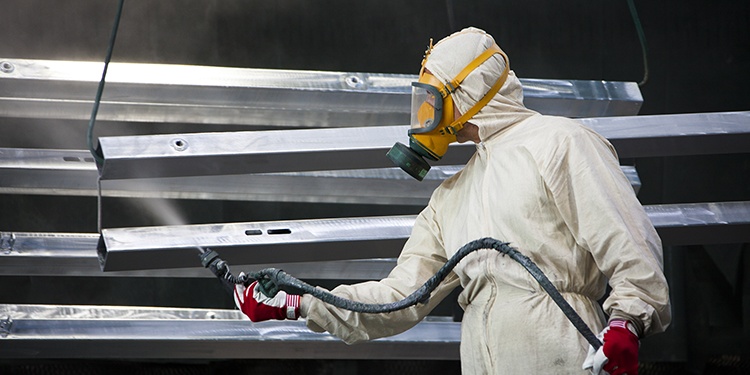How to Properly Prepare Surfaces for Industrial Painting

Industrial painting plays a crucial role in preserving the integrity and aesthetics of structures, machinery, and equipment in various industries. However, the key to a successful and long-lasting paint job lies in the preparation of surfaces. Proper surface preparation is a meticulous and essential process that ensures the paint adheres well and delivers optimal protection.
As suppliers of leading industrial paint branks, the team at IPS Paint Supplies is ideally placed to guide you through the steps required for preparing surfaces for industrial painting.
Assessment of the Surface
Before you begin any preparation, it’s essential to thoroughly assess the condition of the surface to be painted. Check for any signs of corrosion, existing paint layers, dirt, grease, or other contaminants. This assessment will help determine the appropriate cleaning and surface preparation methods.
Safety Precautions
Industrial painting often involves working with hazardous materials, so safety should be a top priority. Ensure that you and your team have the necessary personal protective equipment (PPE), which may include gloves, respirators, safety glasses, and coveralls. Adequate ventilation is also crucial when working with paints and solvents.
Cleaning the Surface
Cleaning is the first step in surface preparation. Remove all loose paint, rust, dirt, and contaminants from the surface. Depending on the surface material, this can involve various methods, such as pressure washing, abrasive blasting, chemical cleaning, or power tool cleaning. The goal is to create a clean and contaminant-free canvas for the new paint to adhere to.
Rust Removal
If you encounter rust, it’s vital to remove it entirely. Rust can continue to spread under a new paint layer, leading to premature failure. Mechanical methods like abrasive blasting or wire brushing are effective for rust removal, but chemical rust converters can also be used to transform rust into a stable surface.
Surface Roughening
To promote paint adhesion, it’s often necessary to roughen the surface slightly. This can be achieved by sanding, using abrasive pads, or shot blasting, depending on the surface material. The objective is to create a profile that allows the paint to grip effectively.
Priming
Priming is an important step in surface preparation, especially when dealing with porous or bare metal surfaces. The primer acts as a barrier, preventing the topcoat from interacting with the substrate. It enhances adhesion, seals the surface, and provides corrosion protection.
Sealing Joints and Gaps
Seal any gaps, seams, or joints in the surface that may allow moisture to penetrate beneath the paint. Proper sealing is critical in preventing corrosion and maintaining the paint’s integrity.
Masking and Taping
Before painting, ensure that adjacent surfaces, equipment, and areas that should not be painted are adequately masked and taped off. This prevents overspray and maintains a clean and professional finish.
Choosing the Right Paint
Selecting the appropriate industrial paint is essential to achieving the desired results. Different surfaces and environments require specific paint types, such as epoxy, polyurethane, or enamel. Consult with a paint specialist or manufacturer for expert guidance.
Professional Application
Lastly, the actual painting process should be carried out by trained professionals who understand the correct techniques for applying industrial paint. Proper equipment, mixing, and application methods are crucial for a uniform and lasting finish.
IPS Paint Supplies
Proper surface preparation is the foundation of a successful industrial painting project. Neglecting this crucial step can lead to adhesion problems, premature paint failure, and costly rework. By following the steps outlined by our team and paying careful attention to surface assessment, cleaning, rust removal, and priming, you can ensure that your industrial painting job is not only visually appealing but also provides long-lasting protection for your valuable assets.
For more information and guidance on the application of industrial paints call a member of our team today on the numbers below:
Swansea: 01792 784078
Cardiff: 02920 022461
